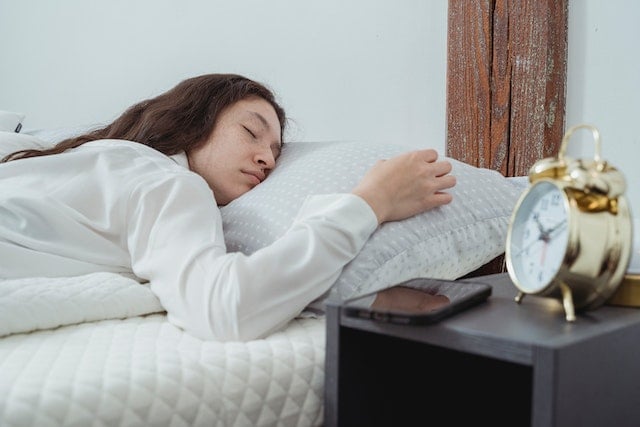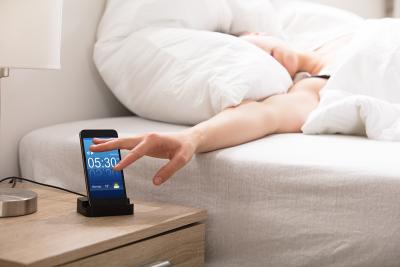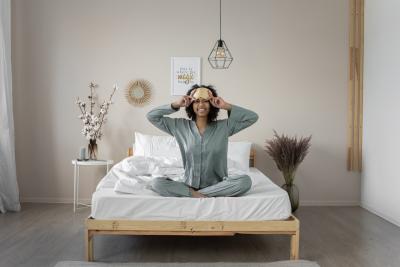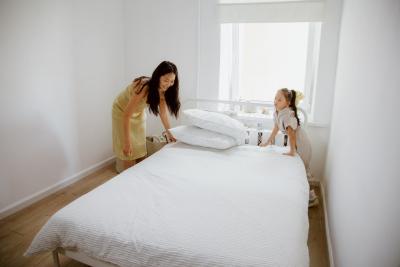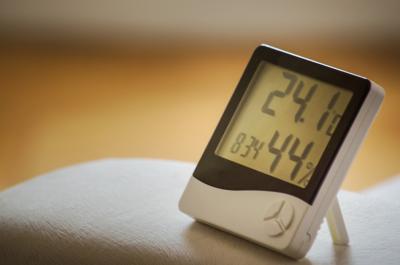We’ve all been there. The alarm clock loudly chimes, you roll over, sigh and suddenly you’re wondering “Should I get out of bed as soon as I wake up? Or can I give it 5 more minutes?”
Well, you’re not alone. As it turns out, there’s some interesting science behind our love of a lie-in!
What is Melatonin and why does it make us comfortable?
When we sleep, our bodies produce a hormone called melatonin which makes us feel relaxed and comfortable. But once we wake up, the melatonin stops being produced.
Due to it taking time to dissipate, melatonin is still present in our bodies when we wake up. This is the reason why we get that comfortable feeling upon waking, and why we end up staying in bed. If you’re a slow riser you most likely won’t get this feeling as, by the time you wake, you won’t have any melatonin left in your body. Lucky for some, eh?
Getting the Rest Your Body Needs
If you struggle with sleeping in, it could be because your body isn't getting the necessary rest it needs. These six reasons could explain why your bed feels much more inviting in the morning.
So, let's have a closer look:
- You're using technology too soon before bed
- You're getting up in the dark
- You're drinking too much caffeine
- You're struggling to maintain a consistent bedtime
- You're spending too much time in the bedroom
- You're eating too soon before bed
1. Are you turning off your technology?
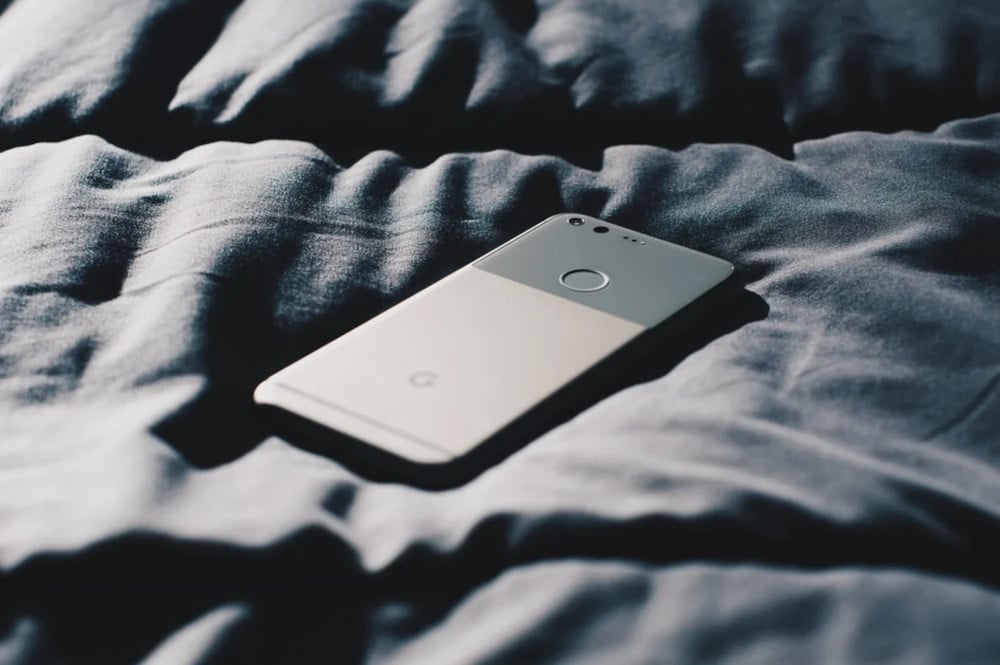 Technology is a wonderful thing, there's no doubt about it. But as with most modern developments, a few first-world problems have come along with it. One being, the lie-in.
Technology is a wonderful thing, there's no doubt about it. But as with most modern developments, a few first-world problems have come along with it. One being, the lie-in.
Electronics are the opposite of what we need before bed. The light from the device, whether that be a smartphone, tablet, or TV, disrupts the body’s level of melatonin.
Melatonin is the hormone that dictates our sleep cycles, and if that’s all over the shop, then you won’t get the necessary amount of sleep cycles in before your alarm goes off. When it inevitably does, however, you’ll be left feeling as though you got no sleep at all, even if you did hit the recommended eight hours. And ultimately, you’ll end up sleeping in.
2. Are you in the dark?

Like many things, sometimes the solution is so much more straightforward than we originally thought.
While it’s important to set the scene before we sleep, it’s just as important to set the scene when we wake up too.
Attempting to crawl out of your lovely double bed while the room is still dark is only going to make it that much harder. Opening the curtains first thing will help activate the body’s natural circadian rhythms, and in turn, help you feel that much more energised and ready to leave the comfort of your covers*
*It’s important to remember that this technique may be ineffective in the Winter months when the sun never seems to come out...and that’s why we all struggle to get out of bed during this time of year!
3. Are you relying too heavily on the afternoon caffeine kick?

While we completely empathise with your need to indulge in a little extra caffeine to get you through that midday slump, it can be one of the leading factors behind getting up late.
Caffeine takes a long time to leave your system, and by long, we mean over eight hours. Drinking tea or coffee after 2 pm can have a massive adverse effect on your attempts to rest that evening. So even if you’re not tossing and turning through to the daylight hours, the quality of your sleep will be affected.
Since your mind and body are still being stimulated, it’ll be difficult for it to fully rest and recuperate, with a full sleep cycle perhaps only being achieved just as morning time approaches. In this case, your brain will be woken well before it’s fully ready, and you’ll end up feeling like you need a whole gallon of coffee before you can even contemplate leaving the safety of your duvet. You’ll be that tired you won’t even know what day it is, never mind how to get out of bed in the morning!
And so a vicious cycle of caffeine and sleeping in begins…
4. Are you struggling to stick to a consistent bed time?
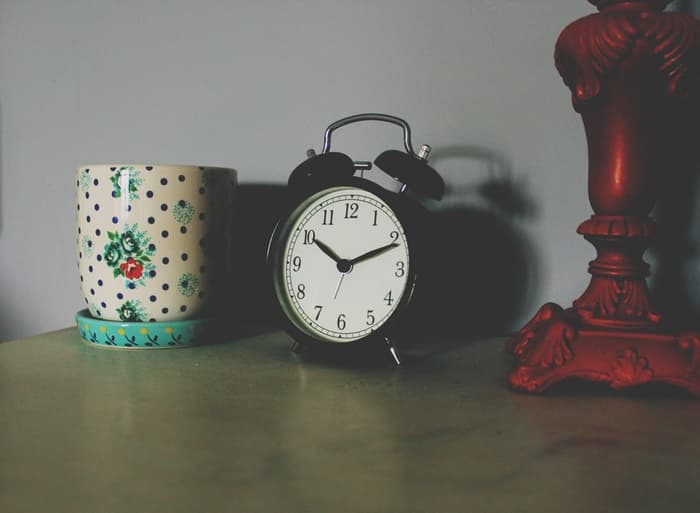
As children, we’re taught to be in bed by a specific time each night, and yet as adults, we throw these rules out the window. Well, it turns out that (as much as it pains me to admit) our parents were right. A consistent bedtime not only teaches the body when it should be tired but when it should be awake too.
It may be that the reason your bed is so much more comfortable during the early hours, is simply because your body isn’t aware that it needs to be awake yet. Erratic bedtimes can cause more chaos than we’re aware of, so even the most basic of sleep schedules would help promote regulated sleeping patterns and stop you getting up late.
Try to keep a schedule for a while and see what happens, we bet you’ll be staying in bed a lot less than you used to!
5. Are you spending too much time in the bedroom?

In theory, the bedroom should be used for sleeping and relaxation only. We do understand, however, that life often interrupts this golden rule, and bringing work into the bedroom is a habit we can easily slip into.
While it is tempting to just lock yourself away and crawl into a comfortable space while you study, write, or type, allowing your work to encroach on your ‘safe space’ is a dangerous game.
The brain can’t help but associate certain spaces with specific tasks, similar to how we associate certain smells with memories. But if you’re constantly stressed within the same space that you sleep, then your brain won’t be able to switch off due to its association with feelings of intensity.
Meaning the quality of your sleep will be affected, and your struggle to get out of bed in the morning will be even harder!
If you can’t see yourself breaking away from working in bed anytime soon, try reducing the number of times a week you work there. A change of scenery may have a positive effect on your productivity, as well as allowing your body to associate your bed with relaxation instead of work related stress and emails!
6. Are you eating before bed?
With modern life proving to be hectic, eating your dinner 2-3 hours before bed is now virtually impossible. Similar to caffeine, food activates the digestive system and the body is then forced to process your previous meal alongside attempting to rest.
Your mind may be unconscious, but your body is far from rested and as you find yourself getting up late, it will likely feel as though you haven’t had any rest at all.
We understand that fitting in a large meal is a difficult task in today’s world. So if you find yourself unable to find the time, switching around your lunch and dinner may be a practical option.
A large afternoon meal will help you feel full, and give your body plenty of time to digest. While a lighter evening meal will stop you from waking up with hunger pangs, alongside putting less pressure on your body’s digestive system. Putting less strain on your body during sleep will help you avoid sleeping in, and you will wake up feeling fresh, instead of groggy.
Skipping your evening meal is not recommended, however, as your body needs fuel to both function and rest, in this case going without will only aggravate the issue and lead to you getting up late.
Remember to Rest
We all know the importance of an occasional lie-in. However, if you find yourself staying in bed more often than you used to, then you may have an underlying problem. There are many possible causes of sleep problems, whether it be mental or physical illness.
If you find yourself struggling with your health, it could be contributing to how well you sleep. The NHS has information on both physical and mental health, including advice on how to tackle your problems.
Make sure you take the time to stop and evaluate any aspects of your day that could be causing problems, and change your schedule accordingly. Remember, rest is important for our mental and physical health, so it’s important to add resting time into your day. Watch Netflix, read a book, wear a facemask...Whatever you need to do, as long as you’re relaxing! We promise rest time will help your quality of sleep and improve your wellbeing in the long run. Listen to your body...it knows when you need to take time out!
Are You Still Struggling? Your Mattress May Be the Problem
We hope this article has helped you understand the science behind getting up late. At least now there’s a reason for your laziness. We’re joking!
Another contributor to your quality of sleep is your mattress. Did you know your mattress changes over its lifetime, so ideally you should replace your mattress every six to eight years? Older mattresses may have lumps, significantly sunken in areas or could be causing you to sneeze often while in bed (likely caused by dust or allergens), so as nice as your bed and bed frame might be, your mattress might not be helping.
So it turns out there is science behind your love for the snooze button! Why not upgrade your sleep with a comfortable new mattress? Our wide range of quality Mattresses are destined to make you stay in bed that little bit longer. Whether you prefer a memory foam mattress or pocket spring mattress, we've got you covered!


